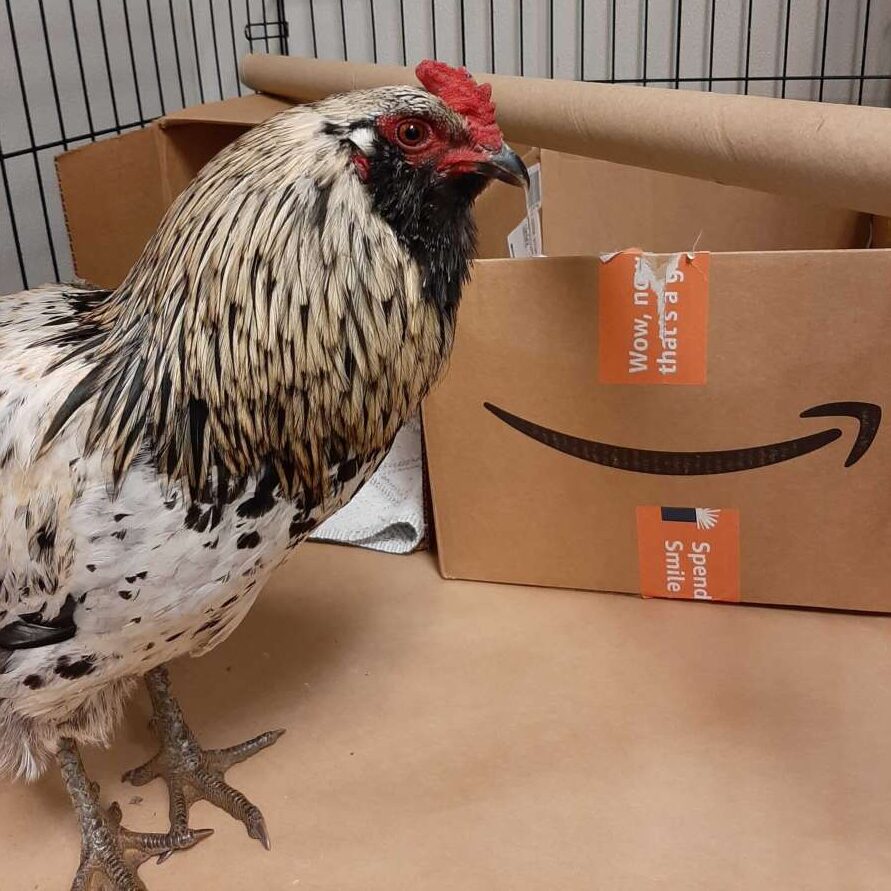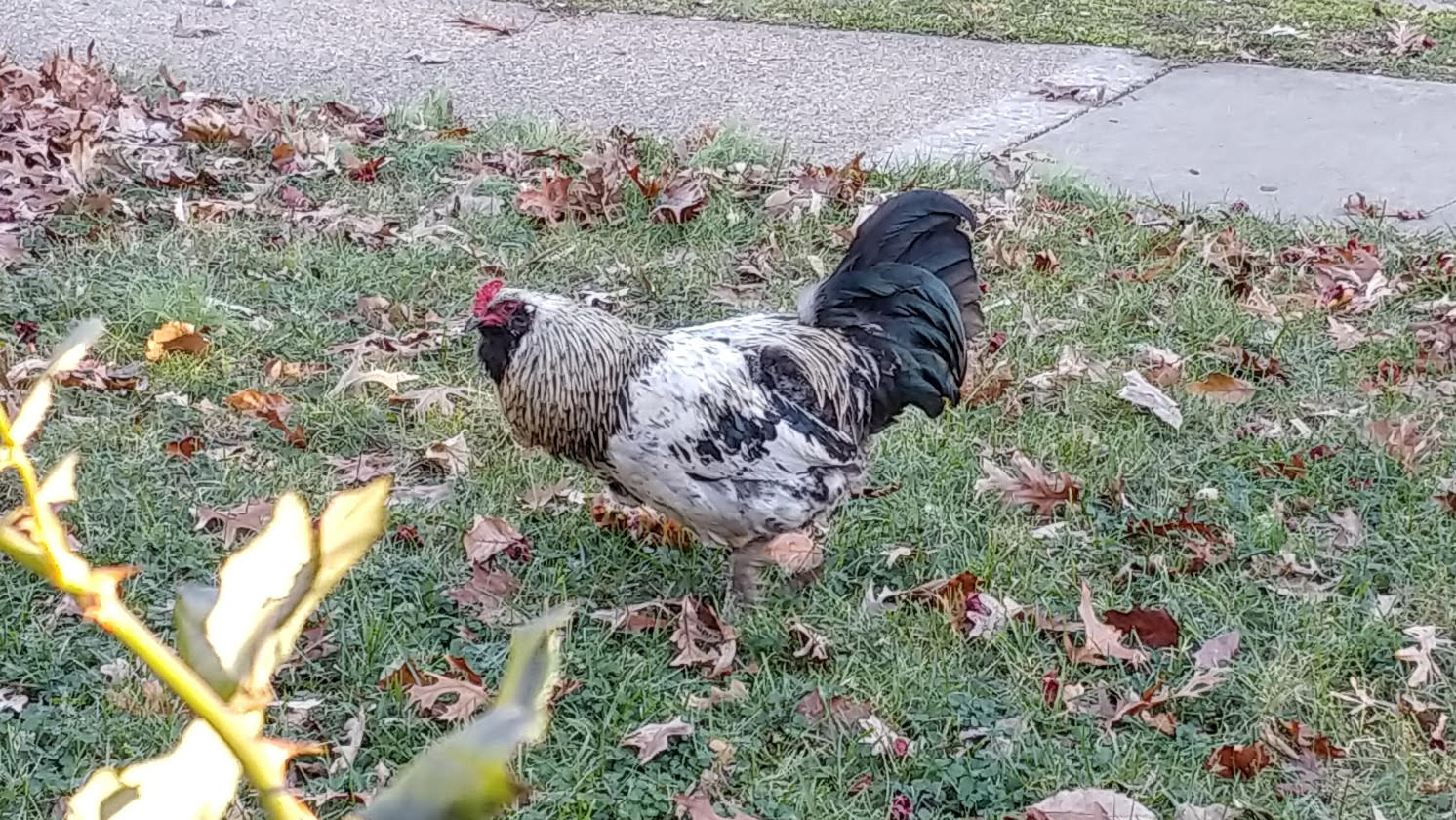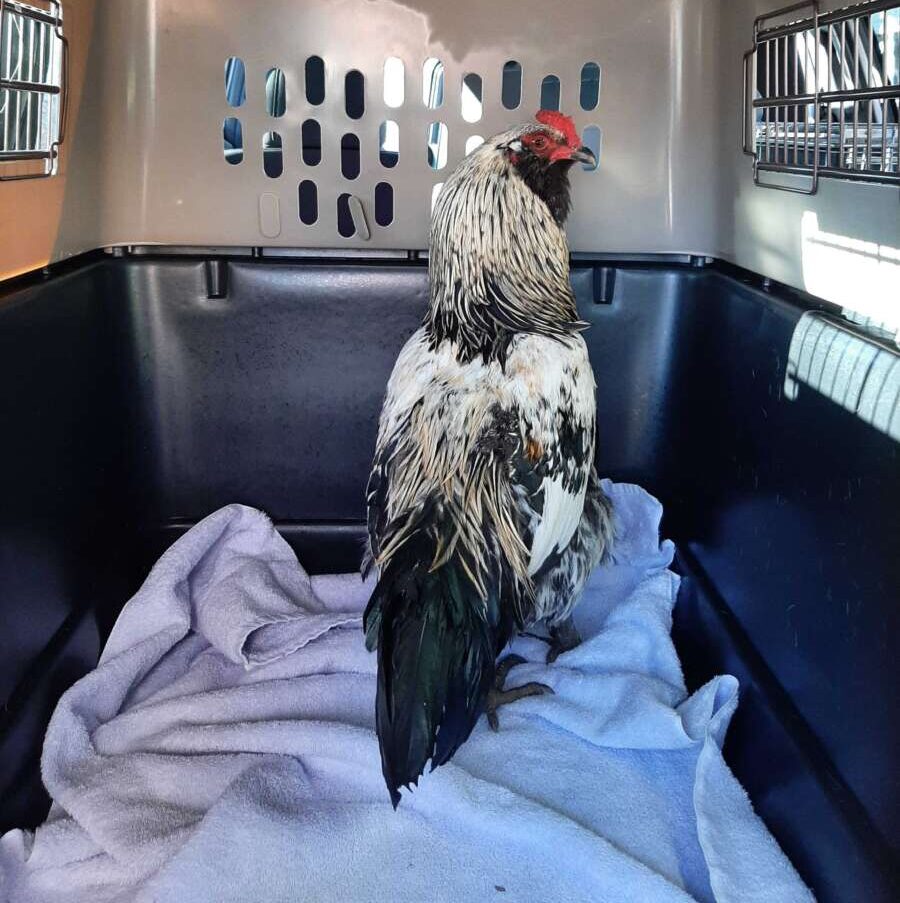A rooster has been nabbed by Arlington animal control after a brief stint on the lam.
Yesterday morning, county animal control officers picked up a rooster that was found wandering near Lubber Run Park, southwest of Ballston, and brought it to the Animal Welfare League of Arlington.
The rooster appeared healthy and was found “running in the front and back yards of the houses that backed up [to] Lubber Run,” according to the responding animal control officer.
The rooster will be kept at AWLA during the stray period (typically, five to seven days) where its caretaker can come to claim the bird.
If no one claims it, the organization will find a “specialized sanctuary farm” for the rooster, AWLA Chief Animal Control Officer Jen Toussaint tells ARLnow.
Wandering flightless birds are a common occurrence in Arlington, notes Toussaint, with animal control officers bringing in a decent number every year.
While roosters (and other fowl, like chickens, ducks, turkeys, patridges) are technically legal in Arlington County, there are strict restrictions on where the birds can go and how they can be housed.
“All poultry here in Arlington must be kept in enclosures more than 100 feet from property lines,” Toussaint says. “Given this restriction many residences do not meet the requirement to have backyard chickens.”
Additionally, it’s illegal for fowl to “trespass” onto county-operated property or land owned by another individual. In other words, this fowl was likely running afoul of county law.
Toussaint also warns — for those considering it — that keeping poultry in the backyard requires a whole lot of work, time, and preparation.
“Raising chickens is not easy and they need time, attention, and routine care. If you plan on going on vacations it’s not as easy to find a ‘pet sitter’ for an entire coop of chickens,” Toussaint says.
Chickens graze, so soil testing should be done since urban areas could have high mercury and lead levels. These heavy metals could be found in the eggs the chickens produce which can be harmful if ingested, particularly by young children.
Another common issue that AWLA finds is that too many chickens are being kept in coops that are too small. The birds need, at minimum, a four by four feet of space, Toussaint notes. Too tight quarters increases the risk of disease transmission, including salmonella and E. Coli.
What’s more, roosters and chickens don’t exactly make for great neighbors. They can be loud and their manure can smell, says Toussaint. Chickens can attract rodents and be prey for hungry foxes as well as wander into roadways and become traffic hazards.
It’s for those reasons that a push by backyard chicken advocates a decade ago attracted opposition and laid a proverbial egg, failing to substantially loosen the rules around keeping chickens.
“Please own [chickens] responsibly,” says Toussaint. ” We regularly find them at large and loose in backyards outside of enclosures. Not only is this against county code but it is not neighborly or safe for the chickens.”
Hat tip to Michael Thomas




